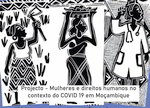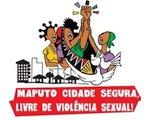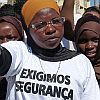Responding to the media
by L.S. Kudjeka, published in the Zambeze weekly, on 2, 9 and 16 November 2006
Maria José Arthur
The text referred to above appears in the “Main report” column, which is quite curious. A “report” refers to “information” and is the product of an act of reporting, while what we have in hand is an opinion article, based on the more profound beliefs and values of its author, without any presentation of facts and proofs of what he says.
This so-called “report” intends to be a criticism against the development policies, and has the intention to dismantle current strategies of domination and exploitation of African countries and, particularly, of Mozambique. This consists basically of three steps: “1) To destroy the social tissue, 2) To offer poisoned gifts, 3) The Dakar horse”. With this comment we want to focus on the first proposition, published in the first part of the article.
The author defends that by “destroying the social tissue” a dependence on external aid is being created intentionally: the stability of the communities, the “primary unit of the nation” is being threatened, and the “self-help mechanisms of the communities” are being destroyed. And how is this done? Mr. Kudjeka explains:
“With the arrival of the political independence of our country there has been a fierce fight, of Western inspiration, against certain centuries-old cultural practices, described as offensive to the rights of some and others, especially women and children, with emphasis on polygamy and the lobolo [dowry]”.
In fact, says the author, behind these positions there is “a long-term plan, carefully orchestrated by our benevolent new friends” (author’s emphasis).
So we are faced with:
- A defence of the levirate, a practice that establishes the marriage of a widow with her brother-in-law, so as to continue belonging to the family of the husband; the author defends that the levirate guarantees the rights and dignity of women and their children, so that they don’t need to inherit anything from the deceased, because they don’t lose anything with widowhood.
- An explanation of the lobolo as a mechanism of mutual aid, being compared to the “dowry in the West”. In addition, it is emphasized that the lobolo “allows providing an outlet to sexual urges” of women, without them having the need to “subject themselves to a multitude of different men”, and at the same time stabilizes society, without widows having to “get involved in relations of amantism [love outside a recognised union] with married men”.
- With the “abolition” of the lobolo, says the author, women have to enter into prostitution for the subsistence of their underage children, “to enslave herself every day of her life” not to a brother-in-law, but to unknown men; he also points to other consequences of the “abolition”, such as child malnutrition and the appearance of the phenomenon of “street children”.
- A defence of polygamy, presented as a “socio-economic organisation with the objective to increase family production” and which is a cause of envy on the part of the “Western frigids”, who see it as a “mere source of sexual lewdness”. On the contrary, Mr. Kudjeka considers that polygamy allows an improvement of the family diet, their health situation and the nutrition of the children, freeing time so that these can go to school.
- A defence of premature marriages, which in spite of having “harmful” aspects are seen as a blessing, as a way of liberation of the girl from sexual harassment by all men, by becoming “subjected” to only one man, instead of working for the parents and brothers starts to work only for the husband, starts to have somebody who takes charge of her subsistence and security, and, finally, the spread of HIV/AIDS is reduced. The author defends that if in affluent societies this practice is a crime, when there is poverty things are different.
Let us stop here to briefly analyse these theses.
In the first place, as said in the beginning, we should emphasize that no facts are presented that allow us to prove (or not) the veracity of the author’s arguments.
In the second place, the majority of the explanations given are ingenuous and based on a lot of ignorance in relation to the real situation of the country and the issue in general. Thus it is that we see, for example, the author defending “social Darwinism”, a theory that has already very much been denounced in the social sciences, as supporting systems of exclusion and domination. I will not mention what is being omitted or misrepresented about the Mozambican social reality, because this is too evident.
In the third place, in the course of the whole reasoning there is an implicit position, presented as an axiom, in relation to which it is unthinkable to have a disagreement: women are not subjects of rights. For Mr. Kudjeka, girls and women should feel grateful for having a man to whom they can “subject” themselves (his expression, not ours), and not at all be interested in their own interests and needs. In fact, in the vision of the world here asserted, women are central to the functioning of these social institutions, not as subjects, but as objects, their happiness depending on their respect for tradition. Everything in the name of a superior interest, of society, which is guided by men.
In the fourth place, in the perspective of the article culture is seen as a whole with bounds and internally coherent. This vision has already been rejected by the social sciences several decades ago: culture has no bounds, unless these have been established through political coercion or in the context of cultural nationalisms; on the contrary, culture is heterogeneous, fluid and contradictory. Therefore, culture is dynamic and transforms itself in the course of time.
Finally, and following this reasoning, it is said that the discourse of human rights is alien to the Mozambican culture (the author does not use the plural, in a country with so much diversity) and that this discourse is brought by the foreign NGOs. These positions don’t take into consideration the numerous local conflicts and the claims of women in the course of these years of independence. So, we are suddenly discovering that the struggle for the emancipation of women has not been the result of internal forces, but of evil and foreign NGOs with malignant long-term purposes!
These aspects cover the wide spectrum of issues that arise from a reading of Mr. Kudjeka’s article. A lot more could be said, but the very superficiality of the aims defended do not justify greater detail.
We would like to end by saying that the ignorance of the author, together with his prejudices and patriarchal values, combined to produce a text truly offensive of the rights and dignity of the women of this country. A text that falls directly into the category of “discrimination” on the basis of sex, given that practices are openly defended that hurt the rights and even the physical integrity of women and girls, such as, for example, premature marriages (in fact, Mozambique is on the list of the 10 countries that at world level present the worst scenario regarding this issue).
In the presence of this, what is the responsibility of the weekly which not only publishes the text but even gives it a fraudulent coverage, by inserting it in a column called “main report”? How is it possible that theses which openly advocate the inferiority of women and the need for their continued subordination can be published in a democracy and a Constitutional State? This situation only shows how illusory the democracy in which we live is, at least with respect to women. We continue being excluded from the most basic rights to dignity and respect.
- Referring to the book of Horace McCoy “They Shoot Horses, Don’t They?”.







 Information in English
Information in English



















